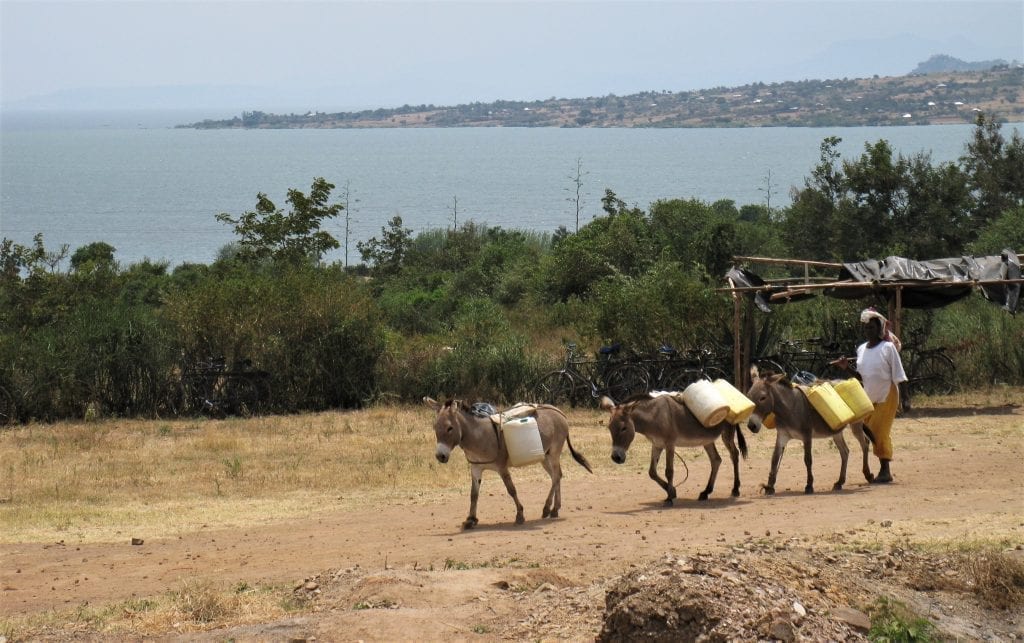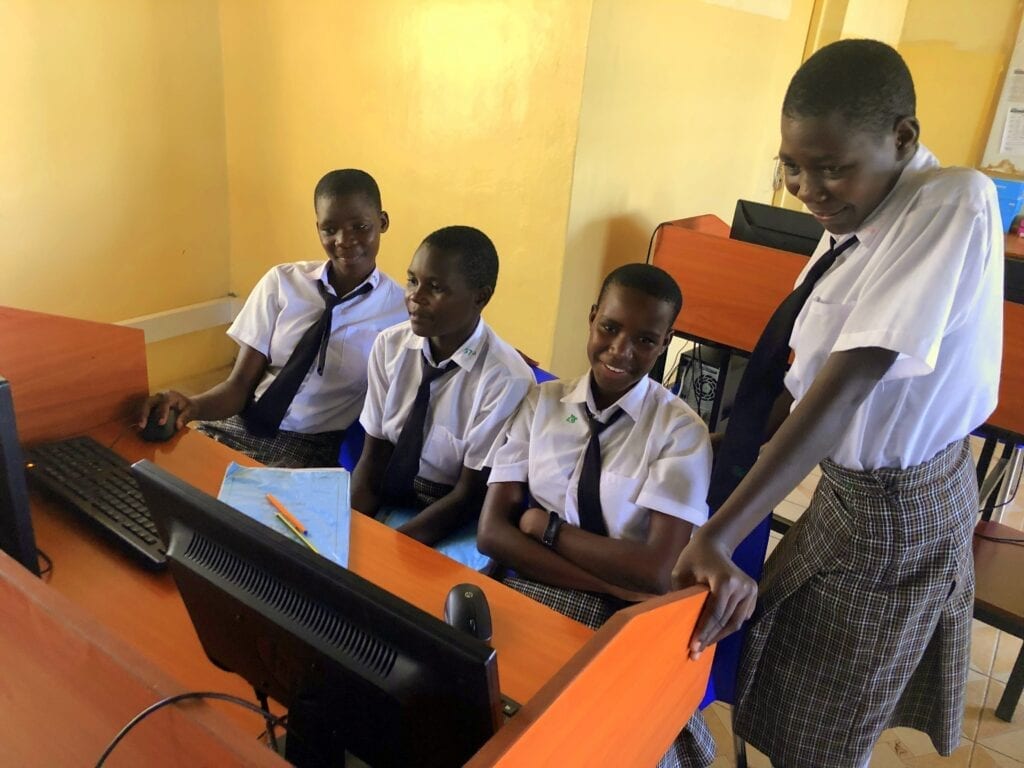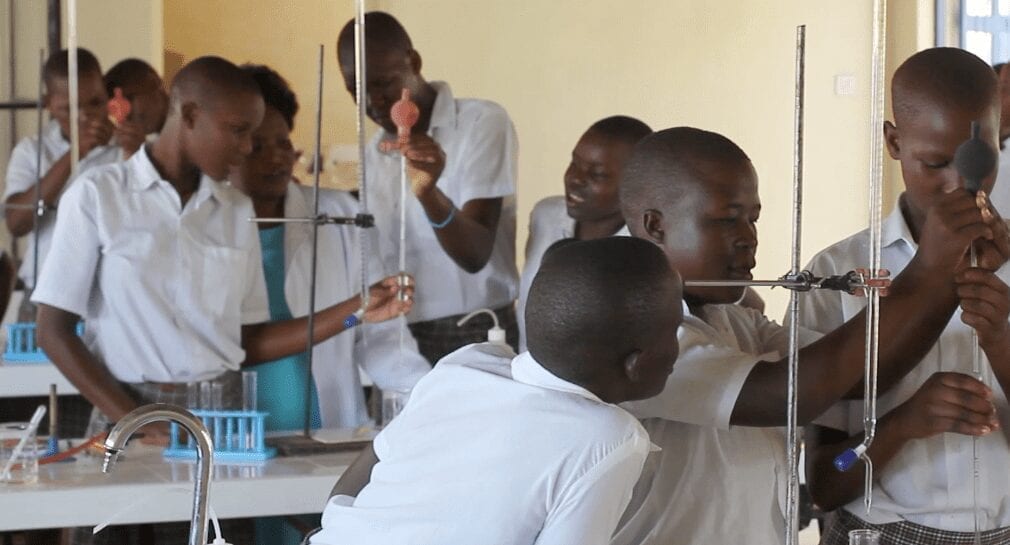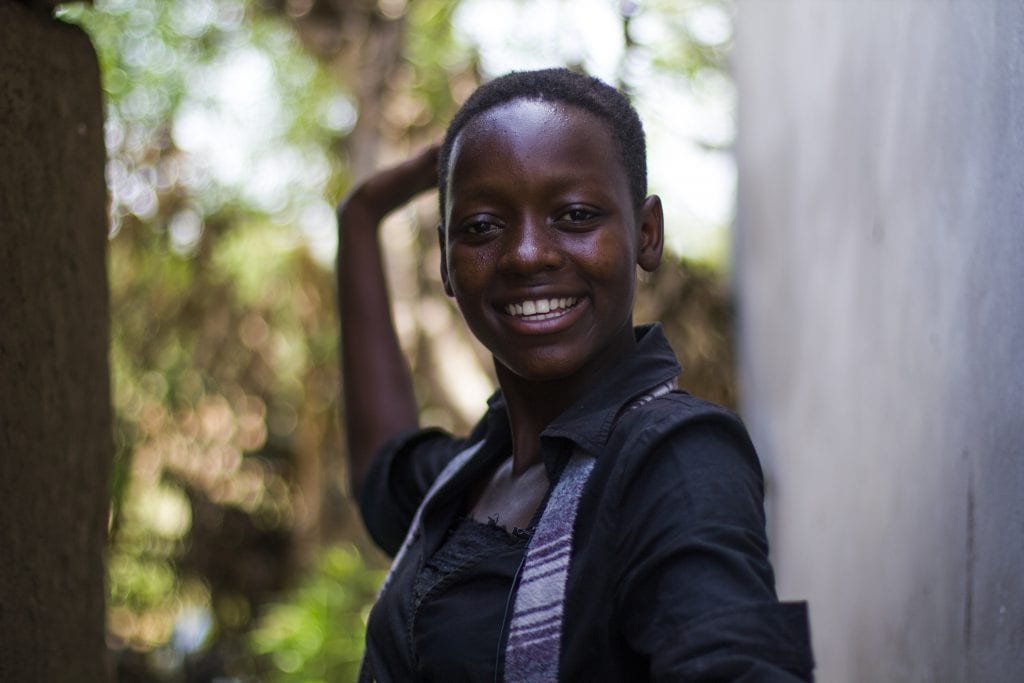A few months after completing her high school diploma, Nimone Odeka found herself employed as the only female math teacher at the high school in her rural Kenyan community.
The odds do not favor Odeka or the other girls in Muhuru Bay. Since many parents are unable or unwilling to financially support their daughters, girls are often driven to transactional sex in order to obtain the health resources, school fees, and even sanitary pads that will allow them to stay in school. For countless reasons, becoming a teacher seemed impossible—until Odeka crossed paths with WISER International.
WISER is a nonprofit that provides quality education to girls in rural Kenya, with a particular focus on STEM and health education. Prior to joining WISER’s holistic education program—which goes beyond scholarship—Odeka recalls a future that seemed “doubtful.”
Her parents struggled to make ends meet and take care of her
and her siblings, so Odeka—hungry and persistent—actively sought out other
options. She applied for aid through WISER, and during her interview promised
to outscore everyone WISER admitted before her. Without WISER supporting her education,
Odeka would probably have had to drop out or find more challenging ways to pay school
fees.
In rural Migori County, where WISER is based, only 7 percent
of girls complete secondary school due to child pregnancy, child marriage,
orphanhood from AIDS, poverty, or gender-based violence—reinforcing a common
societal belief that girls are not worth educating. A 2008 study indicated that
a staggering 50 percent of sexually active girls aged 10-16 in Muhuru Bay used
transactional sex to obtain resources essential for education.

“Around the shores of Lake Victoria, you can find some of the highest rates of HIV in Kenya,” said Zachary Fowler, executive director of WISER. “Some estimates in Muhuru Bay list HIV prevalence as high as 1 in every 3 people. So, when girls are turning to transactional sex in order to obtain the resources they need to stay in school, you’re talking about young women who are, quite literally, willing to put their lives at risk to get an education.”
This year, WISER received a Love on mini grant from the Lenovo Foundation. The grant will help ensure all WISER students have access to a computer science teacher in 2019.WISER’s computer science teacher, Edwin Okongo, not only provides hands-on instruction for all students in WISER’s on-campus computer lab, he also facilitates new technology-related experiences and opportunities for students outside of the classroom setting.
“In any area with poverty, you’re going to see access
problems,” Okongo said. “It kills the morale, the desire to understand
technical sciences. Society, on top of this, favors male students in access to
computers, and even in the university statistics, most of those studying information
technology are male… Giving this chance to the WISER Girls is a chance to
expose a new generation of female students to computing technology that was
denied to them.”

The grant will also fund new ways to engage WISER alumni
with STEM skills-building opportunities.For instance, the grant will allow WISER’s most recent alumni to
participate in a month-long intensive computer skills course to build digital
literacy as they prepare to start college.
Finally, the grant will provide the WISER Science and
Engineering club with resources to empower girls through hands-on STEM
education. The club is open to all WISER girlsand offers opportunities to learn everything from introductory
engineering principals to design thinking through alternative energy to
practical applications of the scientific method.

WISER makes realities that once appeared utterly distant
seem real and achievable for young girls. You can’t become what you can’t see.
It’s important for young girls to see a different narrative lived by people
they can relate to so they can feel confident to dream bigger for themselves,
too. As Odeka shares, she found her passion for teaching when she began interacting with WISER teachers in the
program. In the same way, Odeka hopes to inspire other girls in her community
to dream fearlessly.
“I always tell girls my story on how I started my education
and my background,” she says. “Though it was not that good, I know from a zero
someone can become a hero.”

Since opening its doors in 2010, WISER has had six graduating
classes with a 100 percent graduation rate. More than 93 percent of WISER alums
have gone on to pursue higher education and are making their mark across
various fields. See more of their stories here.
“By providing young women in a hard-to-reach region with
STEM experiences, you are doing more than offering an opportunity for hands-on
learning and critical thinking—you are showing a girl that she is deserving of
a future that may have otherwise been denied to her and opening doors to her
future success,” Fowler said. “Thank you for helping us open those doors with
your partnership.”
